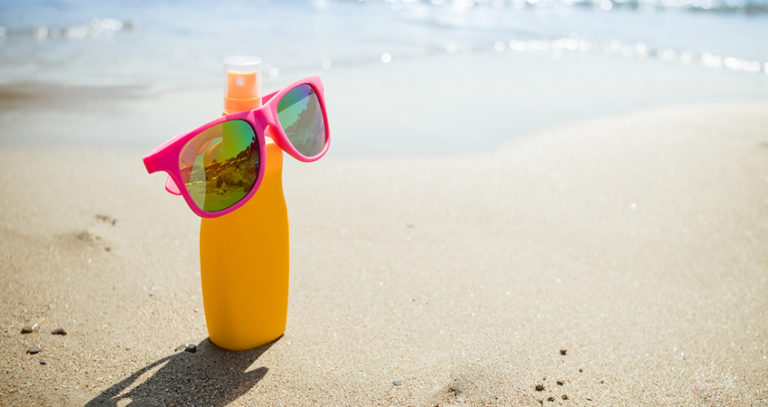When it comes to the ultraviolet (UV) rays from the sun, your eyes are just as important to protect as your skin. The sun can have damaging effects on your eyes and can cause problems such as:
- Macular degeneration: This results from retina damage affecting your central vision. In the U.S., macular degeneration is the top cause of blindness.
- Cataracts: A clouding of the eye’s lens that can blur your vision. Around 20 percent of cases are due to extended UV exposure.
- Pterygium: A growth of tissue over the white part of your eye surface that can change your eyeball curve and cause astigmatism (vision problem that leads to blurred vision).
The best way to protect your eyes from uv damage is by wearing sunglasses and a wide-brimmed hat. Sunglasses do much more than just provide a dark filter over your eyes making it easier to see in the bright Jacksonville, FL sunlight. They’re a bit more complex than that and protect your eyes in a number of ways.
Things to Remember When Choosing Sunglasses
When you buy sunglasses, be sure they’ll protect your eyes adequately. To do this, here are some tips you can follow from the American Optometric Association (AOA):
- Obtain sunglasses that block out at least 99 to 100 percent of UV-B and UV-A rays. While there are some contact lenses that provide UV protection, you should also wear sunglasses to maximize your protection.
- Ensure your sunglasses screen 75 to 90 percent of visible light out. This will protect your eyes more efficiently.
- Have your sunglasses’ frame fit close to the contour of your face’s shape and eyes. This prevents UV ray exposure from all sides, including from behind.
- Make sure the lenses have a uniform tint and aren’t darker in one area than the other. The AOA recommends going with a gray tint, which is especially helpful when you’re driving since it provides the best color recognition.
- Understand different lens colors offer different benefits. Amber and yellow lenses help to filter blue light out, making them perfect for sports. Purple and rose lenses help to increase contrast against green and blue backgrounds, making them ideal for water skiing and hunting.
- Learn about the benefits of polarized lenses. No matter which color you go with, polarized lenses will provide you with the best protection against glare. An easy way to tell if the lenses of your sunglasses are polarized is by holding them up to a source of light and rotating them slowly to see if the light that does come through changes. If it does change, then they are polarized and will help shield your eyes from any glare.
- Protect your children’s eyes too. It’s particularly important for children to have eye protection from the sun. Kids typically spend a lot more time outside than adults. This increases UV radiation exposure. Also, kids are more vulnerable to UV ray-related eye damage since the lens inside children’s eyes is clearer than the lens in adult eyes and enables for deeper UV penetration. When your children go outdoors, make sure they’re wearing high-quality sunglasses to protect their eyes.
Benefits of Polarized Lenses
Polarized lenses are a game-changer for anyone who spends a significant amount of time in the great outdoors. They specifically aid in clearer vision during sports activities like water skiing, snowboarding, ice skating, surfing, and more, because they reduce glare from the sun.
They act as a filter for the excess light that bounces off of objects, making it easier to see clearly. The secret to polarized lenses is their vertical orientation. Glare is typically horizontal light, so since polarized lenses only allow vertical light in, the direct passageway of glare to your eyes is eliminated.
Here’s why you should invest in sunglasses with polarized lenses:
- You’ll start to see clearer, especially in bright places
- You’ll experience increased contrast and minimal collar distortion
- You’ll notice a reduction in glare and reflection
- Your eyes will feel better, straining less and seeing more
Treating the Effects of UV Exposure Damage
If you have suffered UV damage to your eyes, the team at Florida Eye Specialists is here to help. Our surgeons have over 50 years of experience in treating cataracts and are the largest cataracts team in the region. Schedule a consultation with our team to discuss your options for clearer vision. With eight locations throughout Jacksonville, St. Augustine, and Palatka, you can find an office near you and speak with one of our surgeons or cataracts consultants.
*This post was originally published on May 13, 2019 and was updated on December 29, 2020 to include the section titled, “Benefits of Polarized Lenses.”

